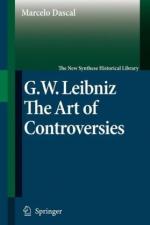|
This section contains 6,709 words (approx. 23 pages at 300 words per page) |

|
SOURCE: "Leibniz's Premisses" and "Leibniz's Theory of Knowledge," in A Critical Exposition of the Philosophy of Leibniz, Cambridge at the University Press, 1900, pp. 1-7, 160-71.
In the excerpts below, Russell comments on Leibniz's influences, the major tenets of his philosophy, and his ideas on knowledge. Russell contends that Leibniz's philosophy was an "unusually complete and coherent system."
The philosophy of Leibniz, though never presented to the world as a systematic whole, was nevertheless, as a careful examination shows, an unusually complete and coherent system. As the method of studying his views must be largely dependent upon his method of presenting them, it seems essential to say something, however brief, as to his character and circumstances, and as to the ways of estimating how far any given work represents his true opinions.
The reasons why Leibniz did not embody his system in one great work are not to be...
|
This section contains 6,709 words (approx. 23 pages at 300 words per page) |

|


